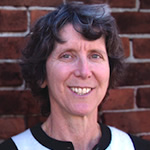Nora Goldstein
BioCycle March 2013, Vol. 54, No. 3, p. 4
We hope, in the not too distant future, the discussion about whether there is such a thing as manmade climate change will be a thing of the past. Luckily, it seems that discussion is primarily limited to Capitol Hill, where the frequency and intensity of the debate — generating enough hot air to melt an ice cap — rivals the frequency and intensity of the storms and drought socking it to the country.
Outside the Beltway, on the front lines, states and communities are living the problems and challenges brought on by a changing climate, a situation exacerbated by shrinking budgets and reduced federal dollars for required programs. Their realities leave little time for endless political debate and wrangling. Fortunately, instead of waiting until every solution is in response to a here-and-now crisis, some states, and many, many communities, are doing what needs to be done.
A case in point is California. When the legislature passed Assembly Bill 939 in 1989, it made achieving 50 percent waste diversion by 2000 mandatory. Jurisdictions not showing compliance or being significantly on the road to compliance by 2000 incurred fines. Organics, first yard trimmings and wood and then food waste, were key to helping most jurisdictions meet the mandate. Then, in 2006, Republican Governor Arnold Schwarzenegger signed the Global Warming Solutions Act (AB 32), which mandates greenhouse gas emissions reductions that have to be achieved by 2020. (In 2007, the California Air Resources Board set the 2020 emission limit of 427 million metric tons of carbon dioxide equivalent of greenhouse gases.) And in 2012, Democratic Governor Jerry Brown signed AB 341, which establishes a 75 percent waste diversion goal by 2020. Unlike AB 939, this is a voluntary goal, but very real nonetheless.
Next month, at BioCycle’s 27th Annual West Coast Conference (April 8-11, 2013 in San Diego), state regulations and policies to achieve the mandate and goal will be explained, and communities actively working to comply will showcase their programs. Caroll Mortensen, Director of CalRecycle, opens the Conference Plenary on April 9. A preview of what Director Mortensen will discuss can be found in her article in the West Coast Conference Preview section, “Next Frontier of Organics Recycling in California” (page 29). What is so exciting, especially for those who have been in the trenches making diversion and sustainability happen in their communities and states, is that recycling organics is not just a key to achieving California’s diversion goal — it is also a key to achieving the state’s greenhouse gas reduction mandate.
The Low Carbon Fuel Standard established in AB 32 illustrates the organics connection. It sets pollution limits for transportation fuels sold in California. The program requires oil companies to reduce carbon pollution from gasoline and diesel by 10 percent by 2020. Companies can utilize any number of cleaner fuel and technology solutions to meet the standard, including anaerobic digester biogas, which has a negative carbon intensity! This 10 percent requirement is helping to foster development of anaerobic digester projects in California, as illustrated in Director Mortensen’s article. A session on low carbon fuels is set for Tuesday, April 9 at the BioCycle West Coast Conference.
In short, while Washington paralyzes itself in political debate, states like California are not waiting for a mandate from on high. California isn’t dreamin’. California’s doin’ — doin’ what it takes, and will take, to combat global climate change. We look forward to seeing you, and getting inspired together, in sunny San Diego.










